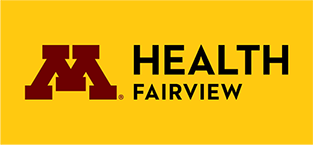|
An Orthopedic Approach to Myofascial ReleaseFairview Rehab Services is host with Great Lakes Seminars Date: Saturday and Sunday, November 2-3, 2024
Intended audience: PT, PTA, AT
Check in time: 7:30-8:00AM
Class time: Saturday 8:00-5:30PM and Sunday 8:00-5:00PM (CST)
Course level: Intermediate
Contact hours: 15.5
St. Catherine DPT and PTA therapy programs is host site for this course
Location: St. Catherine University/Mendel Hall
2004 Randolph Avenue, St. Paul, MN 55105
Course Fee: $450.00
Course intended to be completed in full. If you need to arrive late or leave early the CE department must be notified before course takes place for contact hours to be adjusted
Great Lakes Seminars will submit the approval to the MN Board of PT PT/PTA partial credit: Hours for partial credit attended will be adjusted on your course Athletic Trainer: Continuing Education Information Great Lakes Seminars (BOC AP# P2139) is approved by the Board of Certification, Inc. to provide continuing education to Athletic Trainers. All our courses are approved for Category A Hours. Athletic Trainers should claim only those hours spent in the educational program. Group Discounts: If two people from the same organization register for a course, each person will receive a 10% discount using code REHAB10 and three or more registered will receive a 15% discount using code REHAB15. Please email or call ahead of time with the names of the people who will be registering as a group, [email protected] or 612-672-5607. For Group discounts: USE CODE rehab10 for 10% discount and rehab15 for 15% discount for group. Cancellation Policy: Cancellation Fee will apply Instructor: Course summary:
Objectives:
At the completion of the seminar, the participant will be able to:
Agenda: Day 1: 7:30am Check in
8:00am Introduction to Myofascial Release
9:00am Lecture: Overview of anatomy of the fascial system and its purpose
10:15am Lecture: Introduction and review of specific release techniques
11:30am Lab: Temporomandibular and neck
12:00pm Lunch (on your own)
1:00pm Lab: Shoulder
5:00pm Lab: Review of evidence-based literature
5:30pm Adjourn
Day 2:
7:30am Check in
8:00am Lab: Lumbopelvic
10:15am Lab: Knee, ankle and foot
12:00pm Lunch (on your own)
1:00pm Lab: Elbow, wrist and scars
3:45pmLab: Review
4:00pm Lab: Application to specific clinical situations
4:30pm Lab: Review of evidence-based literature
5:00pm Adjourn
|

